TVD Second Patriotic. 1916 year. Part of 1
11 Bet meeting. 02. 1916 took the principle plan of the summer campaign of the year - the main attack was assumed by the adjacent flanks (left of the North and Right of the West) of two fronts.
The agreed deadlines for a general offensive by the Allies on the Russian and French fronts were planned for the end of spring. But the large-scale offensive of the enemy near Verdun substantially corrected the planning of the Entente: the Russian army again had to bail out its ally. But after the 1915 attacks, the supreme command of the German bloc considered the Russian army incapable of making noticeable changes in the operational-strategic situation.
1 schema. Russian front by March 1916. Podorozhny N. E. Naroch operation in March 1916 M., 1938
This theater covered the most important strategic areas and was controlled by the Northern and Western fronts. By the beginning of the campaign, the largest grouping of German troops on the Russian front was concentrated on this campaign - up to 180000 people against the Northern and up to 358000 people against the Western fronts.
Realizing the principles of the coalition war, the Russian army, in connection with the Verdun operation, launched a premature offensive by the forces of the Western and Northern fronts. The plan of the operation suggested cutting off the Vilna group of Germans from the Neman ferries and the city of Kovno. The northern front was to advance from Jakobstadt to Ponevezh, and the Western front from Smorgon to Vilna. Coming out to Vilna, taking possession of Kovno, cutting off the German troops from Riga and Dvinsk and advancing to East Prussia, the Russian troops beat off from the Germans a significant part of the territory of the Baltic States lost in 1915. But the achievement of this goal ran into insurmountable at that moment obstacles - destroyed communication lines, defense in depth and excellent communications of the enemy. By capturing the strategic network of the Baltic railways, the Germans could transfer their reserves to any scale.
2 schema. Plan of operation Podorozhny N. Ye. Naroch operation
The shock grouping (2-A and part of the forces of 5-A) during the Naroch operation 5 – 17 of March included (with reserves and 14 AK 1-A) 12 cases. The operation was entrusted to the commander of the 2 Army, General of Infantry, V. V. Smirnov, but due to the illness of the latter, the operation was led by Infantry General Acting Commander General of Infantry.
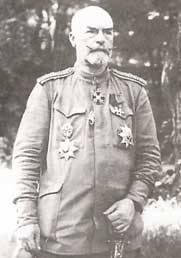
Commander 25 AK Acting Commander 2 A General of Infantry A. F. Ragosa
The operation involved up to 460000 people (including the 375000 — 2 Army). But the artillery support of the operation was insufficient - only about 1000 light and 150 heavy guns were involved. Although the artillery densities at the main strike sector were quite good for the Russian front at the beginning of 1916 G .: 12 - 18 (and in some places up to 35) trunks per kilometer of the front, this rate was significantly lower than used 100 gun barrels per kilometer [1]. The main attack was inflicted on the 3 group of corps of the Western Front: M.M. Pleshkova, L.-O. O. Cirelius and P. S. Baluev.
The enemy - the German troops of the 10 and 8 armies and the army of F. von Scholz - over 100000 soldiers and officers (including 82000 in the 10 army), were in deeply echeloned and well-established positions. The marshy-wooded and lake-like terrain of the offensive site created additional difficulties for the Russian troops.
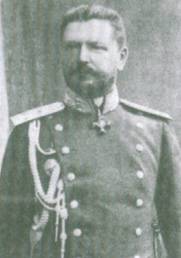
Cavalry General M. M. Pleshkov
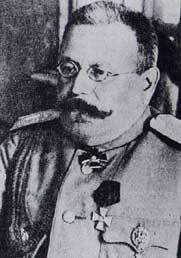
Infantry General P. S. Baluev
In the course of heavy fighting, significant, but at the same time, local success was achieved only by the left-flanking group (Baluev), which seized the seats. Postavy. The result of the operation, in addition to the heavy ground and weakness of the attackers, was also influenced by the tactical miscalculation - the sighting of the day 3 of the day gave the Germans the direction of the main attack. At the same time, the site for the offensive was chosen correctly - a double strike should have covered and then overthrown the 21 th German army corps and brought it to Vilno-Kovno. Auxiliary offensive took place south of Dvinsk, under Dvinsk itself and at Jacobstadt. Bold and persistent, despite heavy losses, infantry attacks were supported by fire unprecedented until now on the Russian front. [2].
The losses of the advancing Russian troops amounted to over 78000 people. The defended Germans lost up to 40000 people, including about 1500 prisoners [3]. The Germans suffered the greatest losses, trying to counterattack to regain lost ground.
Despite the lack of operational results, the battles of Naroch and Dvinsk led to the fact that during the week of the Russian offensive the German attacks near Verdun ceased. Not a single German division during this period (the most important in the fate of the Verdun operation) left the Russian front. Already during the battles of the Men of Garabagh, only the German forces, opposing the 2 Army, increased their 30000 bayonets and 230 guns. The concentration of German reserves in the zone of Russian activity contributed to the success of the first stage of the Offensive of the South-Western Front - after all, in March-June the main reserves of the German Eastern Front were concentrated north of the Pripyat marshes line. On the other hand, the troops of the Western and Northern Fronts were battered even before the summer campaign (the higher command personnel of these operational-strategic associations did not believe in a breakthrough with the available fire weapons of the enemy's deep-echelon defense) and could not perform the strike function.
So, the main blow in the summer campaign was to deliver the Western Front to Vilna, and the South-Western and Northern Fronts to “assist”, advancing in order to attract enemy reserves. But the approval of a plan for the onset of all 3 fronts made it possible to realize the freedom of maneuver in carrying the main attack, if necessary.
3 schema. Baltic-Belarusian theater of war in the summer of 1916. Strategic sketch of the 1914-1918 war. CH 6. M., 1923
Three offensive operations with Baranavichy (30 - 31 of May; 19 - 26 of June; 12 - 16 of July) were carried out in this theater of operations — they had only tactical success.
During the first operation, the Grenadier Corps of the 4 Army was able to seize part of the advanced positions of the Germans. Having completed up to seven attacks, the compound partially mastered the enemy’s main position, but could not hold on or develop success. Persistent counter-attacks and powerful fire forced the corps to retreat to its original position. He suffered heavy overall losses: up to 7000 people. The total loss of the Germans - to 3000 people. In the course of a difficult and stubborn battle, the Grenadier Corps proved its elite character, its soldiers and officers showed mass heroism.
4 schema. Area of operation at Baranavichy. Vogel V. Baranovichi. PB., 1921
The operation abounded with tactical blunders: the weakness of artillery and the errors in its use, the inadequacy of reserves, the narrow front of the attack did not allow to solve the task. A tactical breakthrough bought with big blood due to the absence of a second echelon (development echelon of success) could not be converted into operational victory. With the withdrawal of troops to the starting line, the results of tactical success were lost. Moreover, the unnecessary activity of the Grenadier Corps on the eve of a large-scale offensive showed the enemy the direction of the intended main attack of the Western Front.
During the second offensive at Baranavichy, the Russian command concentrated 145 infantry and 19,5 cavalry divisions on the 2-kilometer section of the front. It was planned to break through the German positions on the front of Chvira, Tsirin, Gorodishche, Zhabintsy, Rusyns, r. Myshanka. In this battle, 4 guns and 15 prisoners became trophies of the 4000 Army (total Austro-Germans lost 25000 people, including wounded before 8000 and wounded before 13000). Russian casualties - up to 80000 (30000 killed, wounded up to 47000 and up to 2000 prisoner) soldiers and officers. Russian troops were able to take 1 - 3 defensive positions of the enemy - but the tactical success could not be transformed into operational.
The third battle under Baranavichy was demonstrative. In the course of this offensive, the 4-I army was to pin down the enemy, not allowing to transfer its troops to the Pinsk and Kovel directions. The 4 Army was advancing in two directions: the 35 Army and the 3 Caucasus Army Corps (in reserve, the Siberian Army Corps 3) on the Settlement; 9-I, 31-I infantry and 11-I Siberian Rifle Divisions (9-y army corps in reserve) - on Baranovichi. Despite the stubbornness of the Russian troops, it was not possible to advance further than the enemy’s 1 line of trenches.
All three offensive operations in Baranavichy with the loss of 120000 Russian troops (including 50000 killed) did not bring significant success. Opponent lost to 40000 people (including 20000 killed). A significant percentage of bloody casualties is a vivid illustration of the brutality of the Baranovichi battles. The operation, long prepared and repeatedly repeated by the forces of one army, resulted in isolated actions of almost unrelated corps groups. This forced Stavk to shift the center of gravity of the main attack to the South-Western Front, developing the operational success achieved there.
On July 3-9, the attack of the 12 th Army of the Northern Front was launched in the direction of Bausk. In the 1916 campaign, the Northern Front was assigned a supporting role. The offensive began after a three-hour artillery preparation, which did not give positive results. Heavy positional battles began in the tactical zone of the defense of the German troops. The attacks of the Russian units were interspersed with constantly renewed artillery preparation. Germans constantly counterattacked. July 7 shock group reached the line of the river. Kekkau The unsuccessful battles of the 12 Army in the period of 3 - 9 in July cost its units the loss of 15000 soldiers and officers.
At the same time, based on the importance of the operational direction and the balance of forces of the opponents, operations in the Baltic States were particularly sensitive for the Germans. In addition, the offensive of the 12 Army held down significant enemy forces and limited its capabilities for military redeployment to the south in order to fight the offensive of the South-Western Front. M. Hoffman noted that the battles near Riga were heavy - the Russians managed to win space, and although the attacks were repulsed, Riga was the most "sensitive place of the northern front" - in the case of a Russian breakthrough, the entire front was reversed [4]. Of particular importance were the operations of the Northern and Western Fronts during the crisis of the reserves of the Austro-German command, when all that was possible was sent to Galicia. In this situation, even local success could be the last straw that overturned the balance in favor of the Russian troops.
Already at the end of the campaign, the 12 th Army of the Northern Front 23 - 29 December was carried out a local offensive operation - to capture the enemy positions in the Lake. Babbit and the break of the Olai railway line and the Mitawa – Creutzburg railway. It was possible to achieve tactical surprise by capturing the 3 line of German positions. But a number of tactical and operational circumstances prevented the development of success. [5]. The operation is interesting with the technology of conducting - the Russians used a new method of breaking through the enemy’s defensive positions. In the course of the Mitava operation and the German counter-attack that followed it in January 1917, the Russian troops lost up to 23000 people (including 9000 missing). German troops, according to German data, lost 3500 people during the Mitava operation [6] (including 1000 prisoners), as well as 33 guns, 19 machine guns.
In the 1916 campaign, the Baltic-Belarusian theater of strategic importance was of secondary importance to the Russian front.
But he was of major strategic importance for the Entente.
B. Liddell-Harth noted that Russia's actions had allowed the German plans for 1916 to be thwarted — the March offensive at Lake Naroch led to a weakening of pressure on France. Then a major offensive was prepared in the northern sector in July. [7].
Yu. N. Danilov also noted that the Naroch operation that had begun during the period of the Verdun battles chained all the German reserves of the Eastern Front. The offensive, carried out in terrifying conditions of the spring thaw and swampland, led to the death of many Russian heroes, but the German High Command was not able to withdraw any troops from the Russian front to move to the west — even those German divisions that were deployed to reinforce the Austrian forces returned. [8].
In the Naroch operation, the Northern and Western fronts assisted the French, in the course of the summer offensive, the strike armies of the South-Western front, in the course of the Mitava operation local tasks were solved. The northern and western fronts drew off the lion's part of the German troops [9]focused on the Russian front, and this had a crucial impact on the success of the 1916 campaign for the Entente.
Notes
1. Barsukov E. Artillery in providing a breakthrough. March operation 1916 g. S. 26.
2. Hoffman M. The war of missed opportunities. C. 108.
3. Podorozhny N. Ye. Naroch operation. C. 124 - 126; Chronicle of the war 1914 – 15 – 16 No. 84 of. C. 151.
4. Hoffman M. The war of missed opportunities. C. 110.
5. Gurko V.I. War and revolution in Russia. Memoirs of the commander of the Western Front. C. 284.
6. Reichsarchiv. Der Weltkrieg 1914 – 1918. Band 11. Berlin, 1938. S. 401
7. Liddell-Garth B. The Truth About the War 1914 — 1918 C. 185.
8. Danilov Yu. N. Russia in World War. C. 396.
9. By the end of March, 200000 was a man against the Northern Front, and before 400000 was a man against the Western Front, almost exclusively German troops. See Strategic Essay on the War of 1914 — 1918. CH 5. C. 110. That is, compared with the situation at the beginning of the Naroch operation, the grouping increased by 82000 fighters.
The headquarters of the regiment on the front Dvinsk. The photo allows to make a conclusion about the difficult terrain Russian forces had to operate in the Baltic States in the summer of 1916. Chronicle of war.
To be continued
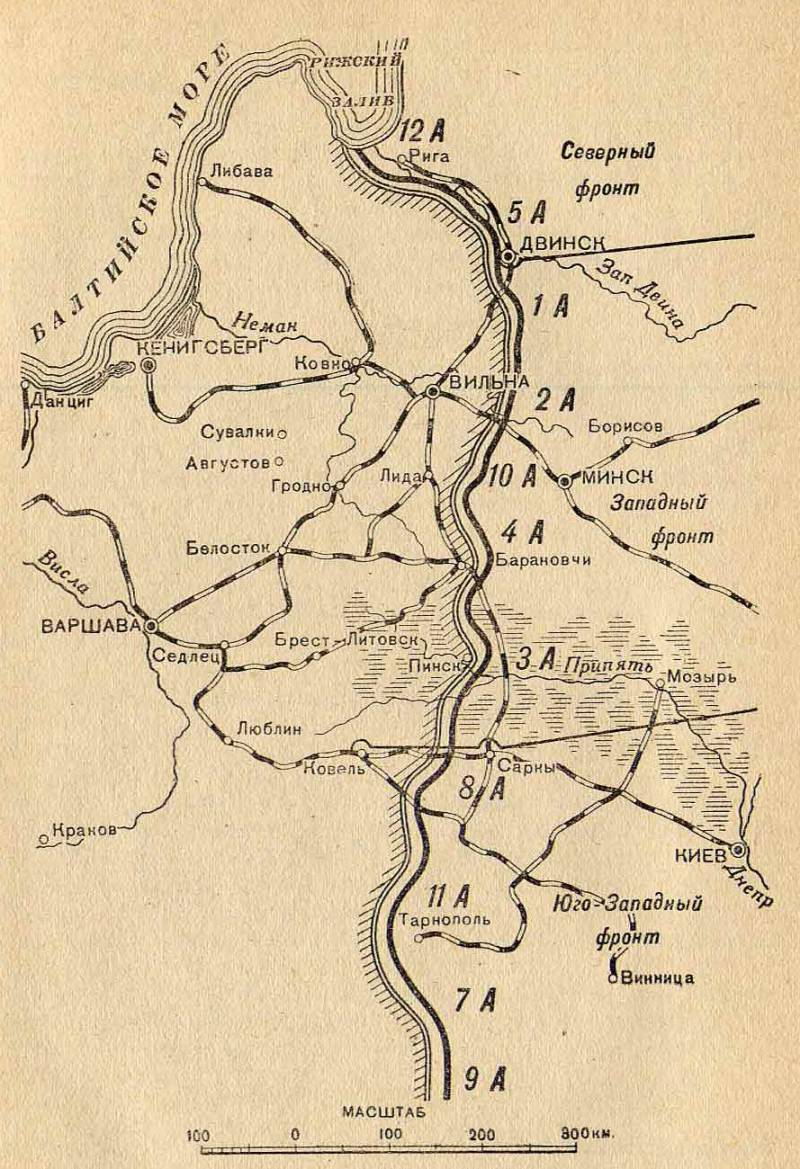
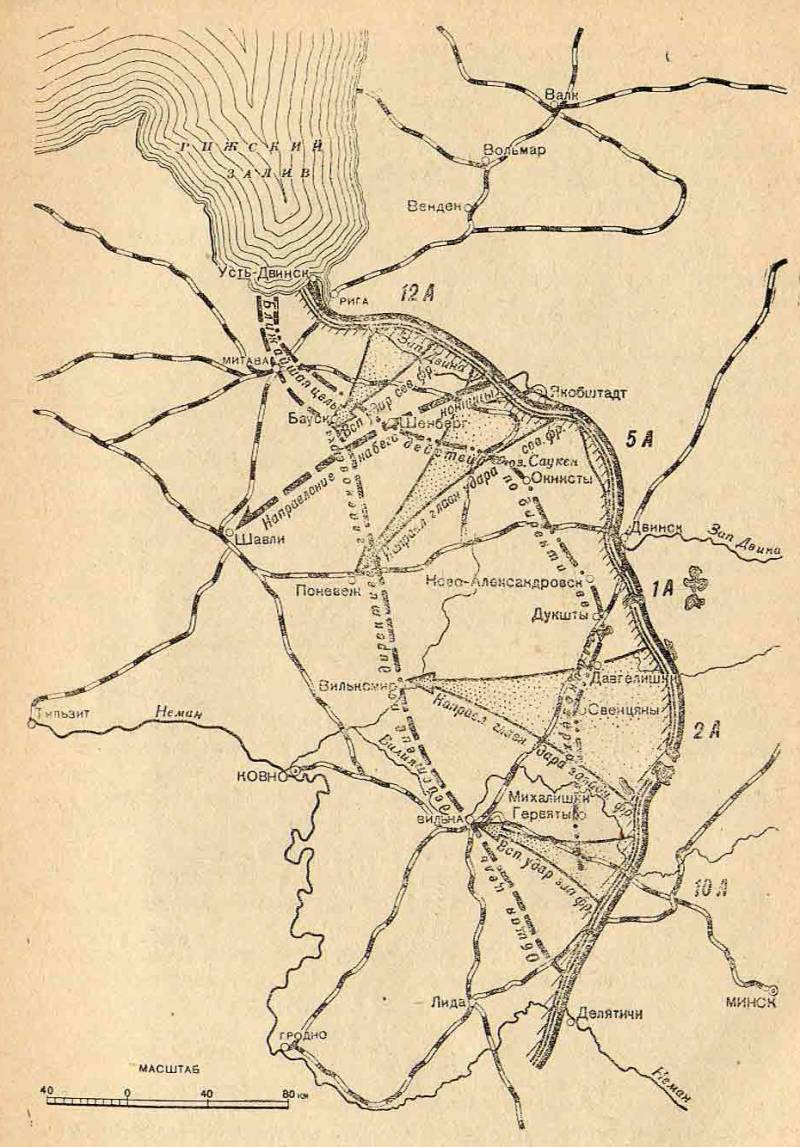
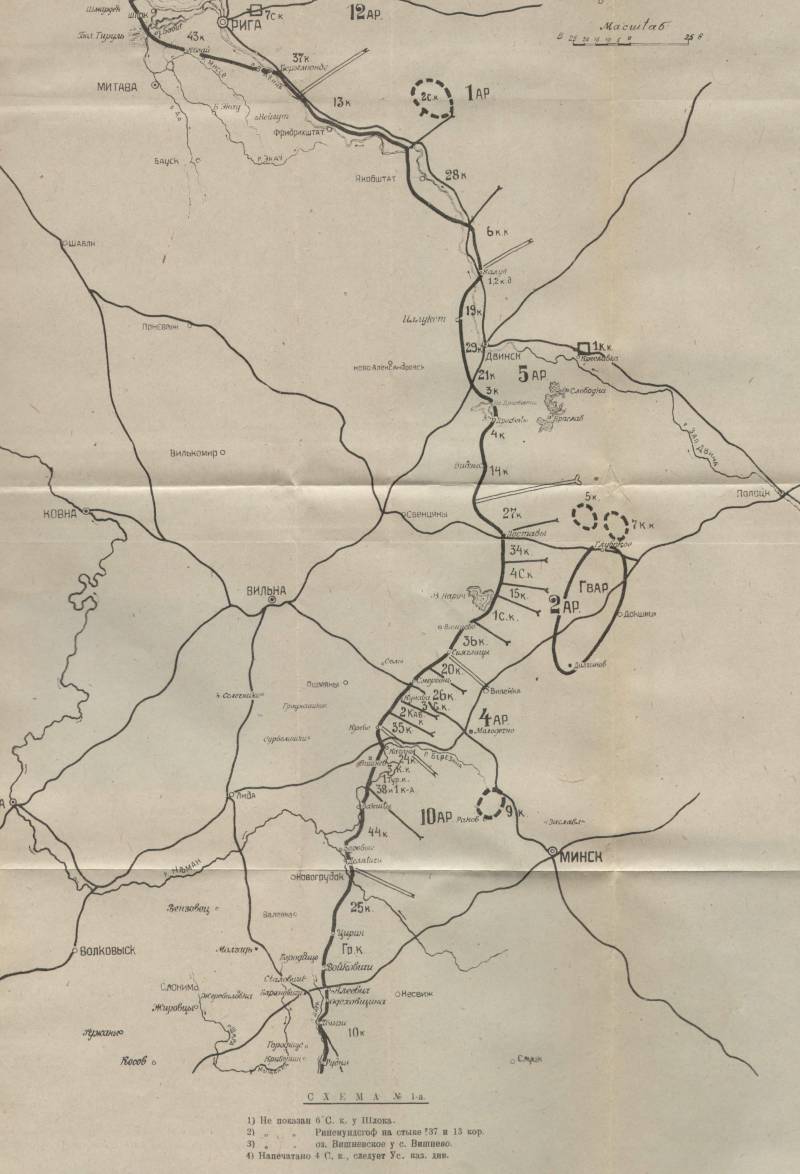
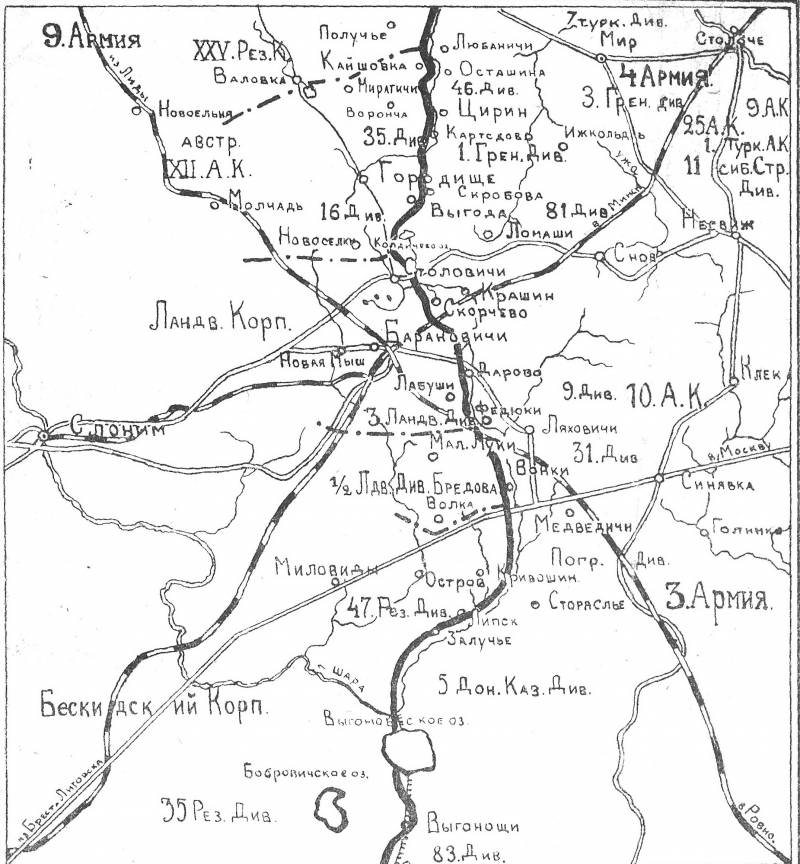
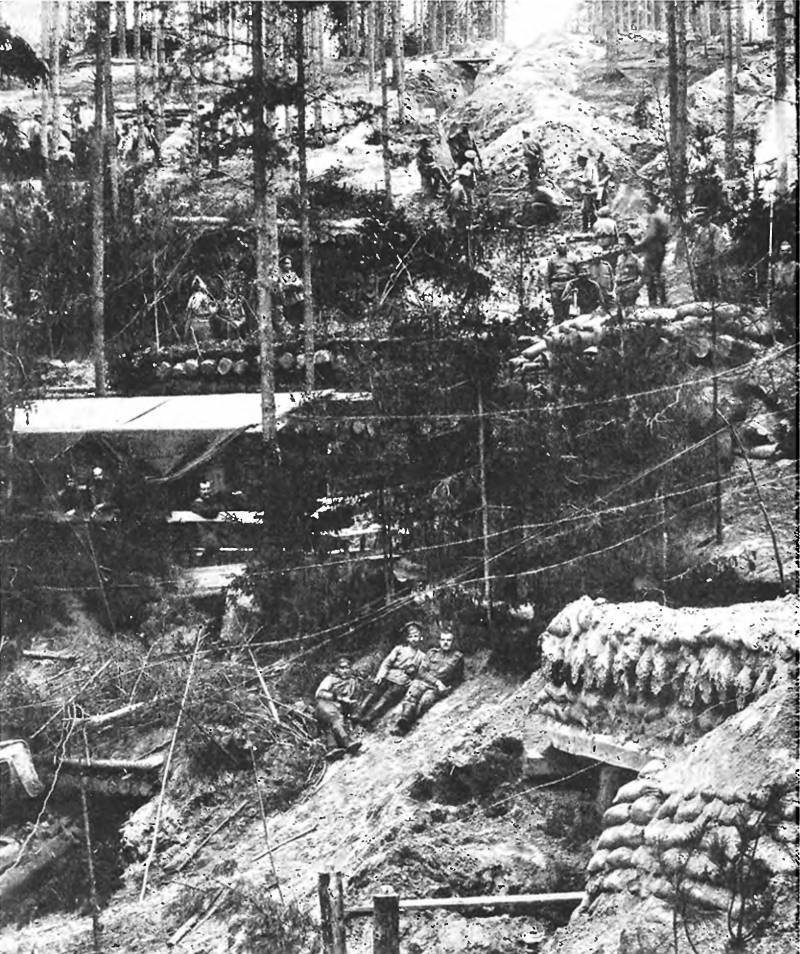
Information